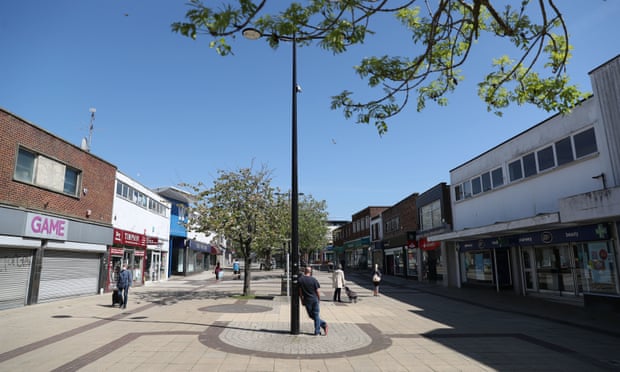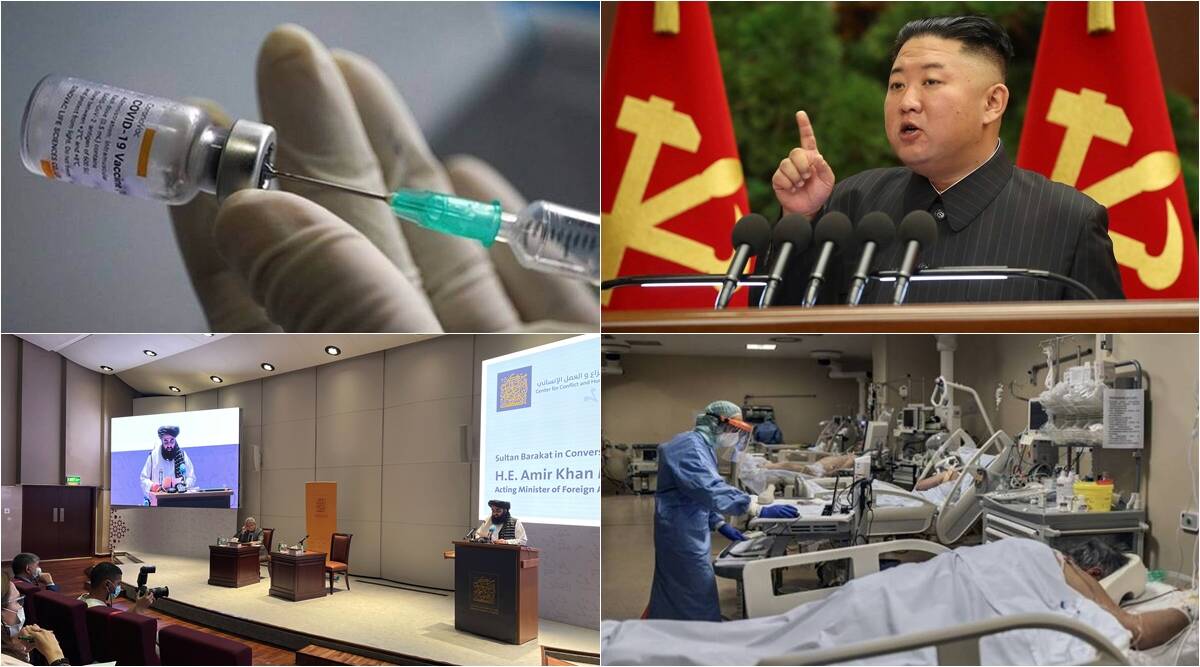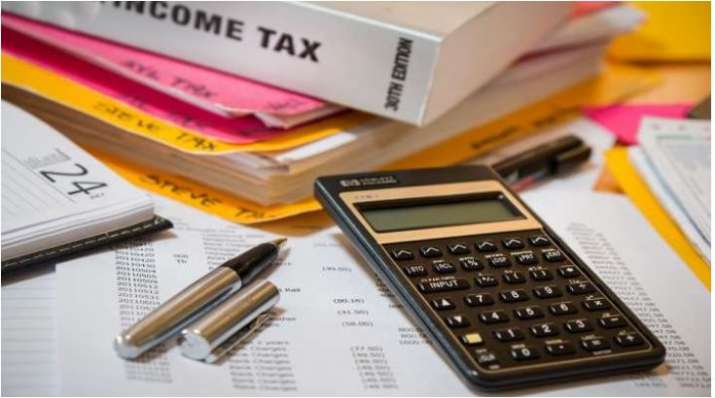UK economy hit by sharpest fall in 41 years amid Covid-19 crisis
- Posted By: Studio
- Coronavirus
- Updated: 15 April, 2024 23:01
- 1412

People queue up outside a bank in a near-deserted Waterlooville town centre, amid the coronavirus crisis in April. Photograph: Andrew Matthews/PA
Britain’s economy contracted by 2.2% in the first three months of 2020 – its sharpest decline in more than 40 years – as the immediate impact from the Covid-19 pandemic provided an even more severe hit to output than first thought.
Fresh data from the Office for National Statistics showed that gross domestic product fell by 6.9% in March, even though the government-imposed lockdown only came into force with nine days left of the month.
Original estimates by the ONS had shown that the economy shrank by 2% in the first quarter as a whole and by 5.8% in March.
New evidence found, however, that the closure of bars, restaurants and shops had an even bigger impact on consumers than the ONS had estimated. The 2.2% drop was the joint biggest since the third quarter of 1979.
With people unable to spend their wages, the ONS said household consumption spending fell by 2.7% between the fourth quarter of 2019 and the first quarter of 2020. The £9.5bn fall in cash terms was the largest nominal fall on record, with big drops reported in spending on cars, eating out, hotel visits, and clothing and footwear.
Broken down by sector, the ONS said the impact of the lockdown had been most severe in services, which make up 80% of the economy’s output. The decline of 2.3% in the first quarter was 0.4 points bigger than first thought. Production output dropped by 1.5% – mainly as a result of factories being shut – while the closure of building sites led to a 1.7% drop in construction.
The ONS said there was also a jump in the household savings ratio – the proportion of income saved rather than spent – from 6.6% to 8.6% in the first quarter.
Government spending adjusted for inflation dropped by 4.1% in the first three months of the year, reflecting lower use of public services caused by schools being shut and hospitals postponing non-essential work.
The first-quarter figures leave the UK on course for its deepest recession in modern times. The ONS’s flash estimate for April found that the first full month of lockdown resulted in a drop of output of just over 20%.
Jonathan Athow, the deputy national statistician at the ONS, said: “Our more detailed picture of the economy in the first quarter showed GDP shrank a little more than first estimated. This is now the largest quarterly fall since 1979.
“Information from government showed health activities declined more than we previously showed. All main sectors of the economy shrank significantly in March as the effects of the pandemic hit.
“The sharp fall in consumer spending at the end of March led to a notable increase in households’ savings.”
Since you're here ...
... we have a small favour to ask. Millions are flocking to the Guardian for quality news every day. We believe everyone deserves access to factual information, and analysis that has authority and integrity. That’s why, unlike many others, we made a choice: to keep Guardian reporting open for all, regardless of where they live or what they can afford to pay.
As an open, independent news organisation we investigate, interrogate and expose the actions of those in power, without fear. With no shareholders or billionaire owner, our journalism is free from political and commercial bias – this makes us different. We can give a voice to the oppressed and neglected, and stand in solidarity with those who are calling for a fairer future. With your help we can make a difference.
We’re determined to provide journalism that helps each of us better understand the world, and take actions that challenge, unite, and inspire change – in times of crisis and beyond. Our work would not be possible without our readers, who now support our work from 180 countries around the world.
But news organisations are facing an existential threat. With advertising revenues plummeting, the Guardian risks losing a major source of its funding. More than ever before, we’re reliant on financial support from readers to fill the gap. Your support keeps us independent, open, and means we can maintain our high quality reporting – investigating, disentangling and interrogating.









Comments